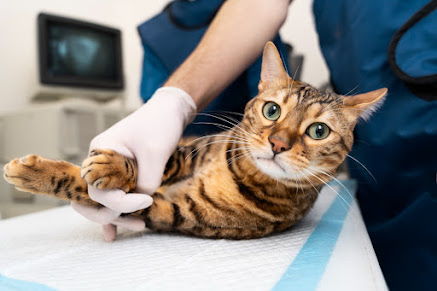Can Cats Eat Seaweed? Exploring the Feline Diet and the Potential Benefits and Risks
Understanding a Cat's Diet:
Before we explore the specific question of cats and seaweed, it's essential to understand the dietary needs of cats. Cats are obligate carnivores, meaning they require a diet primarily composed of animal-based protein to thrive. Their bodies have evolved to efficiently process and derive essential nutrients from meat, such as taurine and vitamin A, which are critical for their overall health.
While cats have evolved to consume a meat-based diet, they occasionally show interest in other food items. However, it's important to exercise caution when considering introducing new foods into their diet, as not all human foods are safe for feline consumption.
The Nutritional Composition of Seaweed:
Seaweed is a broad term used to describe various marine plants that grow in the ocean. Common types of edible seaweed include nori, dulse, kelp, and wakame, which are often used in human dishes like sushi, salads, and soups. Seaweed is rich in a range of beneficial compounds, including vitamins (such as vitamins A, C, and E), minerals (like iodine, calcium, and iron), fiber, and antioxidants. It is also low in calories and fat.
Potential Benefits of Seaweed for Cats:
While cats do not have a dietary requirement for seaweed, there are potential benefits to incorporating small amounts of seaweed into their diet:
Source of Minerals: Seaweed is naturally high in various minerals, including iodine, which plays a vital role in regulating a cat's thyroid function. However, excessive iodine intake can lead to hyperthyroidism, so it is crucial to exercise moderation.
Fiber Content: Seaweed contains dietary fiber, which can support digestive health and prevent constipation in cats.
Antioxidants: The antioxidants present in seaweed, such as carotenoids, may help boost the immune system and provide protection against certain diseases.
Potential Risks and Considerations:
While seaweed offers some potential benefits, there are several risks and considerations to keep in mind when it comes to cats and seaweed consumption:
Digestive Upset: Cats have sensitive digestive systems, and introducing new foods can lead to digestive upset, including vomiting or diarrhea. Therefore, it is advisable to introduce seaweed gradually and in small quantities, monitoring your cat's response closely.
Iodine Imbalance: While iodine is essential for thyroid function, excessive intake can lead to hyperthyroidism. Seaweed is naturally high in iodine, so it's crucial to be cautious and ensure that your cat's overall iodine intake remains within healthy limits.
Sodium Content: Some types of seaweed can be high in sodium. Cats have a low tolerance for excessive sodium intake, which can lead to various health issues, including kidney problems and high blood pressure. Therefore, it is important to select low-sodium seaweed varieties if considering offering it to your cat.
Chemical Contaminants: Seaweed can absorb toxins and heavy metals from the ocean. It's crucial to source high-quality seaweed from trusted suppliers to minimize the risk of contamination.
Conclusion:
While seaweed can offer certain nutritional benefits and can be a safe occasional addition to the feline diet, it is important to exercise caution and moderation. Cats primarily require a meat-based diet to meet their nutritional needs, and their bodies may not be adapted to process certain plant-based foods, including seaweed. Before introducing any new food to your cat's diet, it is always best to consult with a veterinarian to ensure it is safe and appropriate for your individual pet. Your veterinarian can provide guidance specific to your cat's unique dietary requirements, ensuring their overall health and well-being are maintained.






